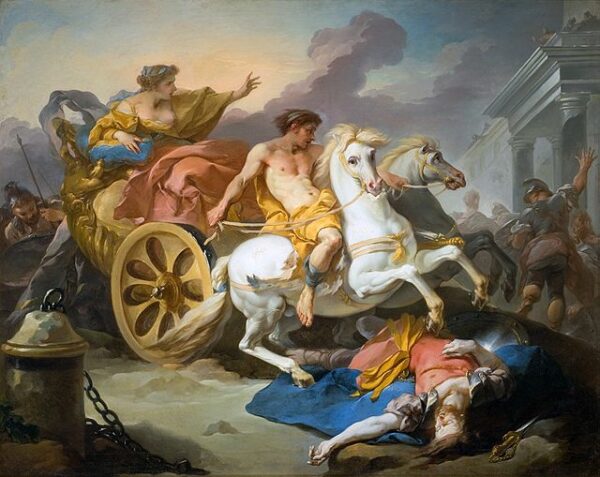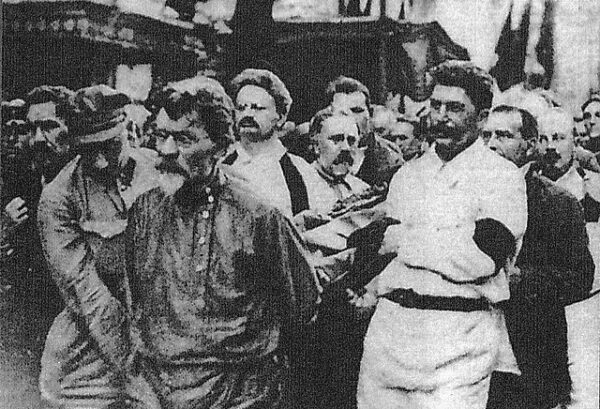Servius Tullius, the sixth king of Rome, holds a pivotal place in Roman history for his military achievements, societal reforms, and administrative innovations. Among his many accomplishments, his first triumph over the Etruscans remains a defining moment that showcased his strategic brilliance and leadership. Celebrated on November 25, 571 BC, this triumph was the first of three, marking a resounding victory that cemented his authority and propelled Rome’s expansion during a crucial period of transformation.
Servius’s rise to power was nothing short of extraordinary. Born a slave, he gained prominence through his intelligence, charisma, and determination. His ascent was facilitated by Queen Tanaquil, the wife of King Tarquinius Priscus, who saw his potential. After Tarquinius’s assassination, Tanaquil skillfully orchestrated the transition of power, ensuring that Servius assumed the throne with the support of key factions. This unconventional rise made him a symbol of Rome’s evolving identity, one that increasingly valued merit and adaptability over tradition.
The Etruscans, Rome’s powerful northern neighbors, were a dominant force known for their advanced military strategies and rich cultural heritage. As Rome sought to expand its territory and influence in the Italian peninsula, conflict with the Etruscans became inevitable. Servius Tullius’s victory over them was not only a demonstration of military might but also a testament to his strategic acumen. This triumph solidified Rome’s dominance in the region, enhanced its reputation, and ensured the security of its borders, paving the way for further growth.
The triumph celebrated on November 25 was a momentous occasion in Roman society. Triumphs were elaborate public processions, granted to victorious leaders as a celebration of their success. For Servius, the event was both a personal accolade and a public affirmation of Rome’s growing power. The streets of Rome were likely filled with cheering citizens as soldiers displayed the spoils of war and paraded captured Etruscan prisoners. Temples were adorned, sacrifices were offered to the gods, and the event underscored the connection between military success, divine favor, and political legitimacy.
This victory had far-reaching political and cultural implications. For Servius, it reinforced his legitimacy as king, a critical factor given the unconventional nature of his rise to power. The triumph also bolstered his ability to enact ambitious reforms, including the introduction of the Servian Constitution. This transformative system reorganized Roman society, shifting the basis of political and military participation from hereditary privilege to wealth and capacity. This approach not only enhanced Rome’s military efficiency but also laid the foundation for the later Roman Republic by emphasizing civic responsibility and broader participation.
Rome’s victory under Servius marked a turning point in its identity. While the Etruscans were renowned for their advancements in art, architecture, and religion—many of which influenced Roman culture—this triumph demonstrated Rome’s growing military strength and political cohesion. It signaled the emergence of Rome as a city-state capable of challenging and surpassing its more established neighbors, paving the way for its eventual dominance in the region.
Servius Tullius’s reign is also remembered for his contributions to Rome’s physical and social landscape. He is credited with the construction of the Servian Wall, a defensive barrier that protected the city and symbolized its transformation into a significant power in central Italy. This wall not only provided security but also marked the boundaries of Rome’s expanding urban population, reflecting its growing influence and stability.
Despite his numerous accomplishments, Servius Tullius’s reign ended in betrayal and tragedy. He was overthrown and murdered by his ambitious son-in-law, Lucius Tarquinius Superbus, who would go on to become Rome’s final king. Yet Servius’s legacy endured. His military successes, administrative reforms, and contributions to Rome’s infrastructure laid a foundation that would influence the city for generations.
The triumph over the Etruscans on November 25 was more than a celebration of military victory. It was a moment that encapsulated the aspirations and resilience of early Rome. Through his leadership, social reforms, and vision for the future, Servius Tullius helped shape Rome’s trajectory as a rising power, leaving an indelible mark on its history.






